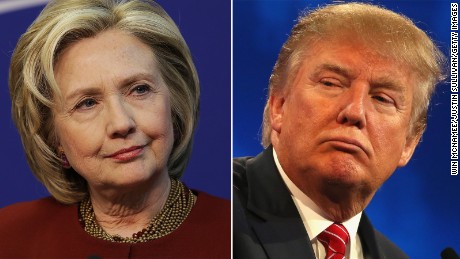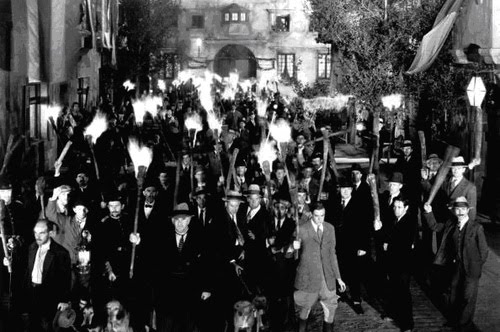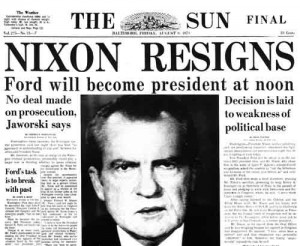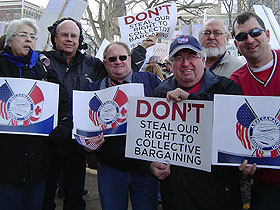NOTE: I wrote this before the election. Obviously, things didn’t turn out the way I expected, but I think it shows that I am a man of courage and integrity that I’m leaving it here, whenI could have easily edited it to show that I knew what was going to happen.
Now that it’s perfectly clear that Donald Trump is not going to be President of the United States, it’s time to reflect on what the next four years might be like.
 Of course many of us are looking forward to the historic election of our First Woman President. I know I am, although I will miss the inspirational oratory of Barack Obama. But the Republicans in Congress are not going to back off their 8-year policy of total obstruction, which means Hillary Clinton won’t be able to get much done, even if Democrats take over both houses. The other side of that coin is that Republicans won’t either, as President Clinton will veto anything they try that’s truly damaging. In addition, the Republicans may lose their majorities in the House and Senate, or see them reduced reduced substantially, which will make the GOP even less effective in their crusade to:
Of course many of us are looking forward to the historic election of our First Woman President. I know I am, although I will miss the inspirational oratory of Barack Obama. But the Republicans in Congress are not going to back off their 8-year policy of total obstruction, which means Hillary Clinton won’t be able to get much done, even if Democrats take over both houses. The other side of that coin is that Republicans won’t either, as President Clinton will veto anything they try that’s truly damaging. In addition, the Republicans may lose their majorities in the House and Senate, or see them reduced reduced substantially, which will make the GOP even less effective in their crusade to:
- lower taxes on the super rich…
- …while allowing them to anonymously contribute any amount of money directly to their favorite political campaigns
- get rid of all trade barriers
- privatize Social Security
- make abortion illegal and
- prevent minorities from voting.
So expect another four or eight years of gridlock during a Clinton presidency, with a public more and more frustrated and angry about it.
But, you say, the worst fallout from the upcoming defeat of Donald Trump will come from the 25 million or so alienated and resentful die hard Trump supporters. They have shown over the past year that they don’t give a fuck about tradition, compromise or moderation. Trump is telling them now that the election will be “rigged,” meaning when Hillary Clinton wins on November 8th, she will have done so through chicanery, and will not be the legitimate president.  These are people who are OK with Trump wanting to ban immigrants based on their religion; who believe it’s a good idea (or even feasible) to build a 2,000-mile wall across the southern border, and who beat up dissenters at Trump rallies. They have shown themselves to be animated by anger and they are potentially violent.
These are people who are OK with Trump wanting to ban immigrants based on their religion; who believe it’s a good idea (or even feasible) to build a 2,000-mile wall across the southern border, and who beat up dissenters at Trump rallies. They have shown themselves to be animated by anger and they are potentially violent.
There’s been talk of Trump supporters going berserk if (and when) they lose the presidential election. Riots, insurrection, that sort of thing. And it’s probably true that many of those armed yahoos will be mad as hornets. It could be a real mess if they take to the streets.
But in the end, I believe they will just go home, turn on Fox News or the new Trump Network, and sulk. Once their leader — and their shot at taking the White House — is gone I don’t think they’ll be organized enough to accomplish anything really big. A lone wolf or two might attempt a “2nd Amendment remedy,” or burn something down, or occupy a federal building somewhere for a while, but as a movement, the wind will be out of their sails, and the Republic will stand.
On the other hand there are all those Republican leaders in Congress who have disavowed Trump. These traitors must be punished, and they surely will be, with ultra right-wing primary opponents in 2018. I have no sympathy for these establishment Republicans who are faced with the horrible choice of supporting Donald Trump or losing all of his fanatic supporters. They have used the crackpot wing of the party for decades to maintain power, and now the rabble has gotten sick of the false promises and has taken over the party. They may be ignorant, but they represent millions of votes. Establishment Republicans won’t ever again get those votes and will have to rely on support from moderates, including conservative Democrats. Conversely, Tea Party types will never get a vote from the moderates, and there you go: The GOP will be split in two. They will be the center right and the extreme right. Between the two of them they’ll probably keep control of the House and most state governments, but they won’t agree on much of anything, and unless they find a way to coalesce they won’t have a chance at the presidency.
I’m afraid that Donald Trump has poisoned the well that we all must drink from. His thoughtless, obnoxious rhetoric is “normalized” now, and President Clinton, who has been victimized for 30 years by false allegations, whisper campaigns, innuendo and phony investigations will face more of the same for four or eight more years. And Congress — spurred on by the angry, ignorant, resentful leftovers of the Trump campaign — will dutifully obstruct everything, cause debt ceiling and funding crises, vote repeatedly to “repeal” Obamacare, and generally make a nuisance of itself.
Buckle up, everybody.




